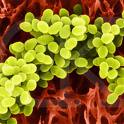THE GOLD STANDARD FOR STERILE MANUFACTURING Injectable product manufacturing is booming because of the growth of new biopharmaceuticals and small molecule anticancer drugs. The requirements for contamination control will become even more stringent than today. Isolators or blow-fill-seal equipment have already replaced the conventional clean rooms and LAF-hoods in many production facilitities. Conventional microbiological monitoring methods, requiring 3 to 5 days of incubation will become inappropriate. Equipment is already available allowing real time, simultaneous viable and non-viable counting. This book is a useful reference guide for the SMB (Small and Medium Business) pharmaceutical sector which does not have the resources to have access to such top-quality information in this field. This book therefore represents an unparalleled and unprecedented text in the field of pharmaceutical and medical device microbiology. Perhaps even more outstanding is the fact that this book not only covers subject matter and technical content which is established as best and expected practice, but also includes content regarded as possible, future and emerging technology or processes.
The results of 45 years of scientific and technological development are laid down in these 33 chapters. These chapters, all written by international experts, give a vivid picture of today s pharmaceutical microbiology. The high standard of the chapters makes it an essential reference guide that should be on the shelf of everyone who is involved or interested in this field. Experts from top pharmaceutical companies like Baxter, Johnson and Johnson, Amgen, Pfizer, Patheon, Sartorious, Gador, Catalent, British NHS, GE Healthcare and many more top experts from industry and academics have come together to create this collection of knowledge of Microbiology as related to Pharmaceuticals, Medical Devices and Biotechnology. The list of authors includes chair and members of USP expert committee on Microbiology and Sterility Assurance, president and senior experts in Parenteral Drug Association, ISPE and ASTM. Foreword by Hans van Doorne, Chair of EDQM, Committee on Microbiology. Contents 1. The Essentials of Pharmaceutical Microbiology by Tim Sandle and Madhu Raju Saghee 2. Relevance of Microorganisms in Pharmaceutical Processing by Ossama M. El-Tayeb 3. Microbial Contamination and Spoilage by David G. Allison 4. Microbiological Considerations in Medical Device Industry by Martell Winters 5. Selection of Microbiological Culture Media and Testing Regimes by Tim Sandle 6. Microbial Identification by Ziva Abraham 7. Microbial Examination of Non-sterile Products by Jaymie Tomes and Florence Wu 8. Practical Approaches to Sterility Testing by Tim Sandle 9. Microbial Aspects in Cleaning Validation by Andrew Walsh 10. Validation of Microbiological Methods by Sandy Rubio 11. Selection and Validation of Disinfectants by Paul Vina, Sandy Rubio and Tim Sandle 12. Auditing a QC Microbiology Laboratory by Andy Martin 13. Quality Assurance in a Microbiology Laboratory by Christophe Barcella 14. Environmental Monitoring by Tim Sandle 15. Microbial Content Testing of Pharmaceutical and Biotechnologically Derived Products by Dilip Ashtekar and Tim Sandle 16. Bacterial Endotoxins Test by Masakazu Tsuchiya 17. Antimicrobial Effectiveness Testing by Scott V. W. Sutton 18. Monitoring of Microbiological Quality Attributes of Water for Pharmaceutical Use by Dilip Ashtekar 19. Investigation of Microbiological Data Deviations by Monica Lagomarsino 20. Alternative Microbiological Methods and New Pharmaceutical Microbiology Curriculum by Claudio D. Denoya 21. The Implementation of Rapid Microbiological Methods by Michael J. Miller Total 33 chapters included in the book.
Complete info at businesshorizonsdotcom








